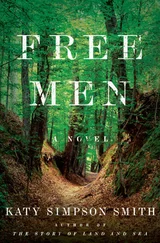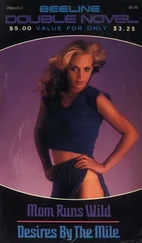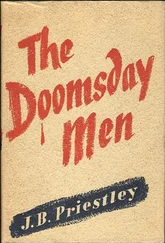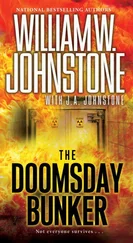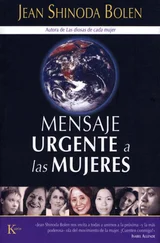—— War Stars: The Superweapon and the American Imagination (New York: Oxford University Press, 1988).
Frayling, Christopher, Mad, Bad and Dangerous? The Scientist and the Cinema (London: Reaktion, 2005).
Freedman, Michael I., ‘Frederick Soddy and the Practical Significance of Radioactive Matter’, British Journal for the History of Science , 12, no. 42 (1979), 257–60.
Frewin, Anthony, ed., Are We Alone? The Stanley Kubrick Extraterrestrial-Intelligence Interviews (London: Elliott & Thompson, 2005).
Friedrich, Otto, Before the Deluge: A Portrait of Berlin in the 1920s (New York: Harper & Row, 1972).
Friedrich, Thomas, Berlin: A Photographic Portrait of the Weimar Years 1918–1933 (London: Tauris Parke, 1991).
Frisch, Otto R., What Little I Remember (Cambridge University Press, 1979).
Fyfe, Herbert C., ‘The Röntgen Rays in Warfare’, Strand Magazine , 17 (1899), 777–83.
Gabor, Dennis, ‘Leo Szilard’, BAS , 29 (Sep. 1973), 51–2.
Gamow, George, Thirty Years That Shook Physics: The Story of Quantum Theory (New York: Dover, 1985; 1st edn 1966).
Garwin, Richard L. and Charpak, Georges, Megawatts and Megatons: The Future of Nuclear Power and Nuclear Weapons (University of Chicago Press, 2002).
Gavroglu, Kostas, Fritz London: A Scientific Biography (Cambridge University Press, 1995).
Geddes, Donald Porter, ed., The Atomic Age Opens (New York: Pocket Books, 1945).
Gery, John, Ways of Nothingness: Nuclear Annihilation and Contemporary American Poetry (Gainesville, Fla: University Press of Florida, 1996).
Gilbert, Martin, Churchill: A Life (London: Heinemann, 1991).
Glass, Bentley, ‘The Scientist in Contemporary Fiction’, Scientific Monthly , 85 (Dec. 1957), 288–93.
Goodchild, Peter, Edward Teller: The Real Dr Strangelove (London: Weidenfeld & Nicolson, 2004).
Graetzer, Hans and Anderson, David, eds., The Discovery of Nuclear Fission: A Documentary History (New York: Van Nostrand Reinhold, 1971).
Grandy, David A., Leo Szilard: Science as a Mode of Being (Lanham, Md: University Press of America, 1996).
Grove, Allen W., ‘Röntgen’s Ghosts: Photography, X-rays, and the Victorian Imagination’, Literature and Medicine , 16 (1997), 141–73.
Gunn, James, ed., The New Encyclopedia of Science Fiction (New York: Viking, 1988).
Gunn, Sidney, ‘Science and Literature’, Science , 34, no. 878 (27 Oct. 1911), 550–56.
Guthrie, Anna L., ed., Readers’ Guide to Periodical Literature : vol. 1, 1900– 1904 ; vol. 2, 1905–1910 ; vol. 3, 1910–1914 ; vol. 4, 1915–1918 (Minneapolis: Wilson Company, 1905–).
Haber, L. F., The Poisonous Cloud: Chemical Warfare in the First World War (Oxford: Clarendon Press, 1986).
Hachiya, Michihiko, Hiroshima Diary: The Journal of a Japanese Physician August 6–September 30, 1945 (Chapel Hill, NC: University of North Carolina Press, 1995; 1st edn 1955).
Hahn, Otto, My Life , trans. Ernst Kaiser and Eithne Wilkins (London: Macdonald, 1970).
Haldane, J. B. S., Callinicus: A Defence of Chemical Warfare (London: Kegan Paul, 1925).
Hales, Peter Bacon, Atomic Spaces: Living on the Manhattan Project (Urbana, Ill.: University of Illinois Press, 1997).
Hall, H. W., ed., Science Fiction and Fantasy Reference Index 1878–1985. An International Author and Subject Index to History and Criticism : vol. 1, Author Entries ; vol. 2, Subject Entries (Detroit: Gale Research, 1987).
Hamilton, Cosmo, ‘War of the Future’, The New Republic , 6 (8 Apr. 1916), 261–3.
Hardy, Phil, ed., The Overlook Film Encyclopedia: Science Fiction (New York: Overlook, 1995).
Harris, D. Fraser, ‘The Man of Science After the War’, The Scientific Monthly , 7, no. 4 (Oct. 1918), 320–25.
Harris, Robert and Paxman, Jeremy, A Higher Form of Killing: The Secret History of Chemical and Biological Warfare (London: Arrow, 2002).
Harris, Sheldon H., Factories of Death: Japanese Biological Warfare, 1932– 45, and the American Cover-up (London: Routledge, 1997).
Hartcup, Guy, The War of Invention: Scientific Developments, 1914–18 (London: Brassey’s Defence Publishers, 1988).
—— The Effect of Science on the Second World War (Basingstoke: Palgrave Macmillan, 2003).
Haynes, Roslynn D., H. G. Wells: Discoverer of the Future. The Influence of Science on his Thought (London: Macmillan, 1980).
—— From Faust to Strangelove: Representations of the Scientist in Western Literature (Baltimore: Johns Hopkins University Press, 1994).
Heilbron, J. L., Lawrence and His Laboratory: A History of the Lawrence Berkeley Laboratory (Berkeley: University of California Press, 1989).
Heims, Steve J., John von Neumann and Norbert Wiener: From Mathematics to the Technologies of Life and Death (Cambridge, Mass.: MIT Press, 1980).
Hendershot, Cyndy, ‘The Atomic Scientist, Science Fiction Films, and Paranoia: The Day the Earth Stood Still , This Island Earth , and Killers from Outer Space ’, Journal of American Culture , 20 (Spring 1997), 31–41.
Hennessy, Peter, The Secret State: Whitehall and the Cold War (London: Penguin, 2003).
Henriksen, Margot A., Dr Strangelove’s America: Society and Culture in the Atomic Age (Berkeley: University of California Press, 1997).
Herf, Jeffrey, Reactionary Modernism: Technology, Culture, and Politics in Weimar and the Third Reich (Cambridge University Press, 1984).
Herken, Gregg, The Winning Weapon: The Atomic Bomb in the Cold War, 1945–1950 (New York: Knopf, 1980).
—— Brotherhood of the Bomb: The Tangled Lives and Loyalties of Robert Oppenheimer, Ernest Lawrence, and Edward Teller (New York: Henry Holt, 2002).
Hermann, Armin, ed., Hedwig Born, Max Born: Der Luxus des Gewissens (Munich: Nymphenburger, 1969).
Hersey, John, Hiroshima (London: Penguin, 2001; 1st edn 1946).
Hershberg, James G., James B Conant: Harvard to Hiroshima and the Making of the Nuclear Age (Stanford University Press, 1993).
Hiebert, Erwin N., ‘The Transformation of Physics’, in Mikuláš Teich and Roy Porter, eds., Fin de Siècle and its Legacy (Cambridge University Press, 1990), 235–53.
Hirsch, Walter, ‘The Image of the Scientist in Science Fiction: A Content Analysis’, American Journal of Sociology , 63 (Mar. 1958), 506–12.
Hoberman, J., ‘When Dr No Met Dr Strangelove’, Sight and Sound , 12 (Dec. 1993), 16–21.
Hoffmann, Klaus, Otto Hahn: Achievement and Responsibility (New York: Springer, 2001).
Hogg, Ian V., German Secret Weapons of the Second World War (London: Greenhill, 2002).
Holmsten, Brian and Lubertozzi, Alex, eds., The Complete War of the Worlds (Napierville, Ill.: Sourcebooks, 2001).
Houghton, Walter E., ed., The Wellesley Index to Victorian Periodicals, 1824–1900 (University of Toronto Press, 1966–79).
Howes, Ruth H. and Herzenberg, Caroline L., Their Day in the Sun: Women of the Manhattan Project (Philadelphia: Temple University Press, 1999). Howorth, Muriel, Atomic Transmutation: The Greatest Discovery Ever Made. From Memoirs of Professor Frederick Soddy (London: New World, 1953).
—— Pioneer Research on the Atom: The Life Story of Frederick Soddy (St Leonards on Sea, Sussex: King Bros, 1958).
Читать дальше

